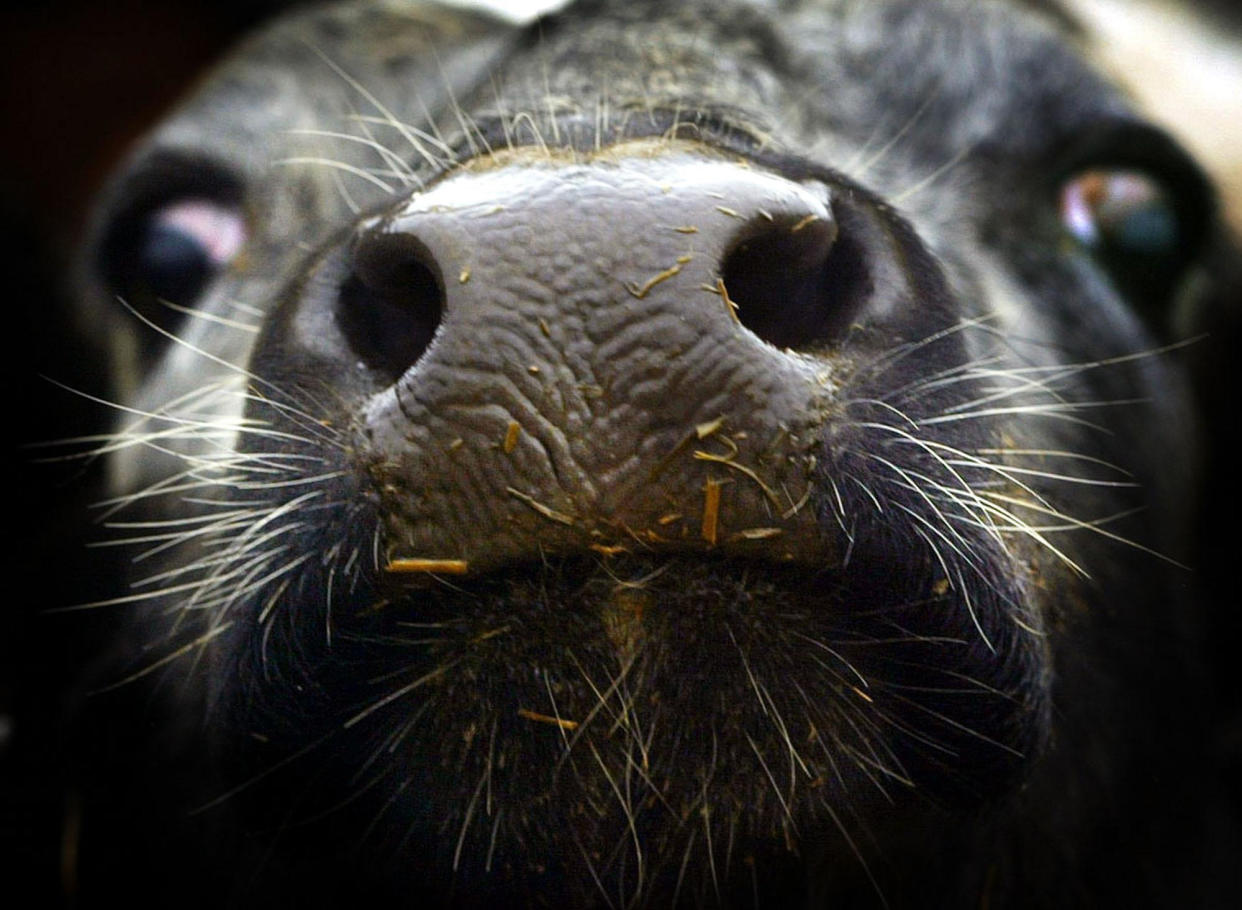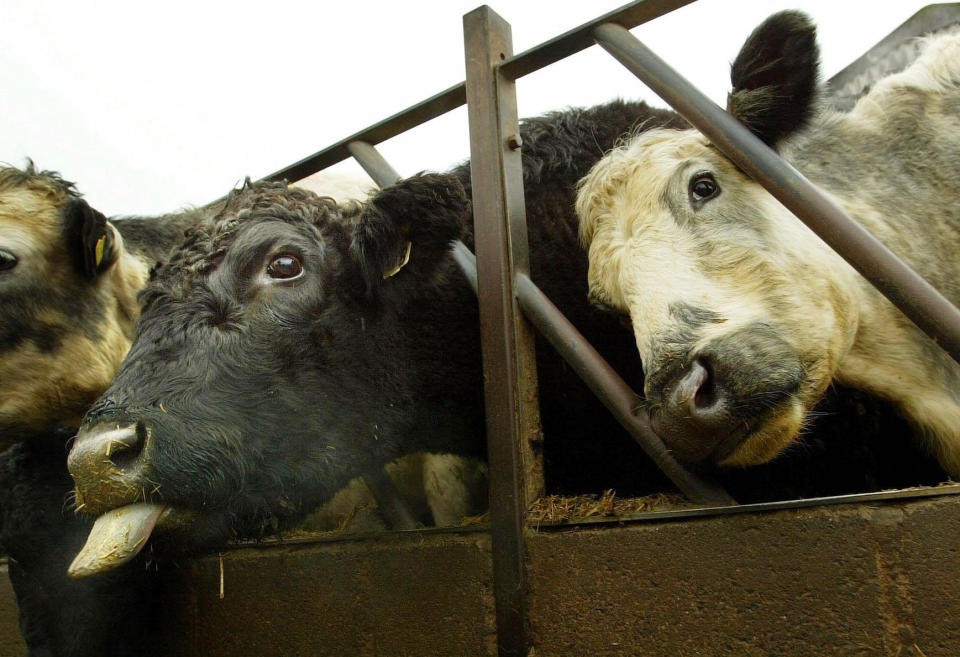More cows to be destroyed at Scottish farm where BSE case was discovered

More cows are set to be destroyed at the Aberdeenshire farm where a case of mad cow disease has been found, but there is “no need to panic, Scotland’s chief veterinary officer has said.
The case of BSE (Bovine Spongiform Encephalopathy) was identified at the unnamed farm as part of routine testing of all fallen stock over four years of age.
Investigators are trying to find the cause of the disease, with a movement ban put in place at the farm while they investigate.
Chief vet Sheila Voas said up to four other cows on the farm will be slaughtered and tested for the disease.
She told BBC Scotland’s Good Morning Scotland radio programme: “The animal itself is dead, she died before she was tested, and there are three other animals, or possibly four, that will need to be slaughtered purely from a precautionary basis.”
Ms Voas said brain stem samples will be taken from the slaughtered animals and tested for BSE.
She said she believes the disease occurred spontaneously in the affected animal rather than being transmitted but warned it could be several months before investigators can say so for certain.
MORE: Fears grow for missing girl, 14, last seen leaving train station with two young men
MORE: Getting the kids ready for school is equal to an extra day’s work each week, report reveals
She added: “All the information we have is this is under control, there’s no reason for people to panic.
“It’s not the start of an outbreak, it’s a single isolated case that won’t affect the food chain.”

Officials have stressed that the latest case doesn’t pose a risk to human health, though any farmer with any concerns is urged to seek immediate veterinary advice.
They have also said that the case shows that the surveillance put in place is working.
BSE can be passed on to humans in the food chain, causing a fatal condition called variant Creutzfeldt-Jakob disease (vCJD).
In the 1990s a BSE epidemic saw millions of cattle were culled and strict controls introduced to protect consumers.
The disease has been reduced to a handful of cases each year in the UK, with the last recorded case in Wales in 2015.
Before the latest case, Scotland had been BSE-free since 2009.

 Yahoo News
Yahoo News 

